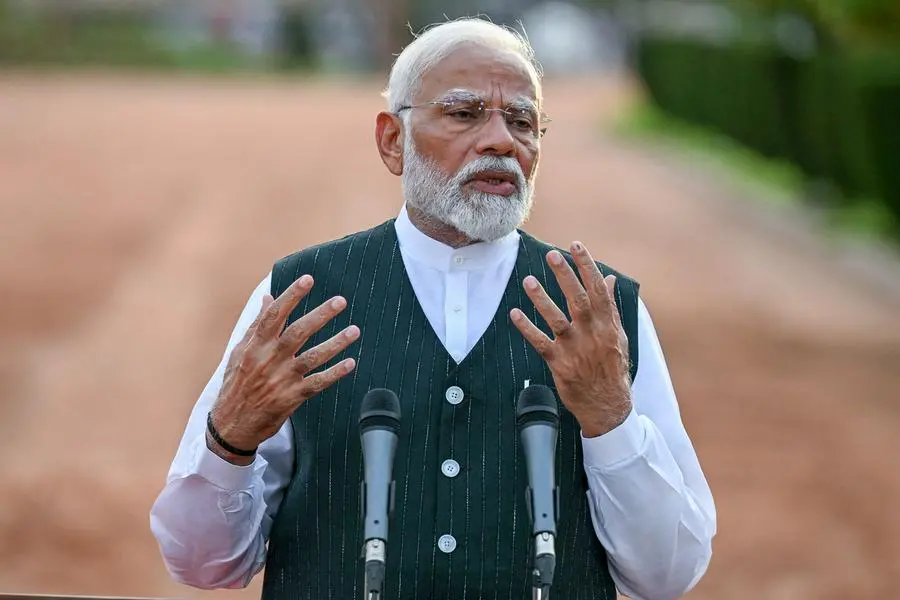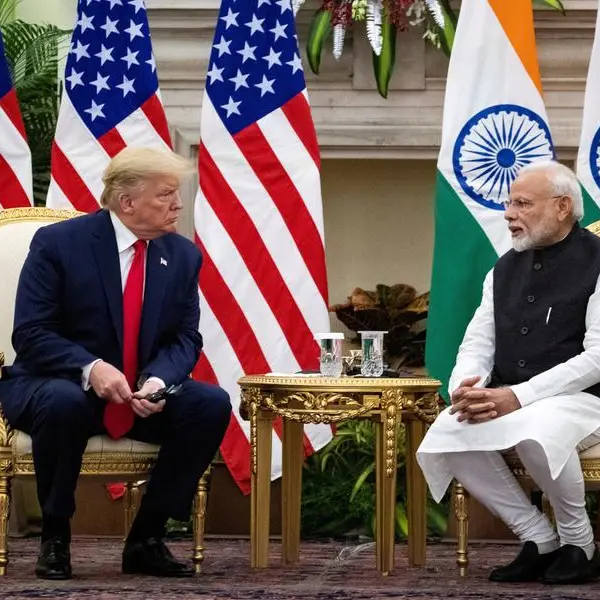PHOTO
Indian Prime Minister Narendra Modi will take the oath of office on Sunday for a third term in power alongside coalition allies after his party failed to win a parliamentary majority.
Modi's Hindu-nationalist Bharatiya Janata Party (BJP) won 240 seats in this year's poll, 32 short of a majority in the 543-member lower house -- its worst showing in a decade.
It has left the BJP reliant on a motley assortment of minor parties to govern, with the larger ones demanding hefty concessions in exchange for their support.
Details of Modi's cabinet have not yet been released despite days of horse-trading since results were released on Tuesday.
With the 15-member coalition, National Democratic Alliance (NDA), the government will wield 293 seats.
Here are the key partners Modi will work with during his third term in office:
- Chandrababu Naidu: from jail to kingmaker -
Veteran politician and three-time state chief minister Chandrababu Naidu was jailed for two months last year, accused of misappropriating $44.5 million in public funds meant for unemployed youth.
Naidu denies the charges and was bailed on health grounds last October, but the criminal case against him continues.
The 74-year-old is leader of the Telugu Desam Party (TDP), which dominates politics in the southern state of Andhra Pradesh and is the largest BJP ally in the next parliament with 16 seats.
Naidu began his political career with Congress, the biggest opposition party to the BJP, and is known as a shrewd politician and a hard bargainer.
He has said Modi is the "right leader for the right time", but it is not clear whether he will get the senior ministry post he is looking for.
"He will not have to beg for it anymore. He will take it," political scientist Ramu Manivannan of the University of Denver told AFP.
- Nitish Kumar: Fair weather friend -
Nitish Kumar, 73, is chief minister of eastern Bihar state and his Janata Dal (United) party is the BJP's second-biggest ally with 12 seats in the next parliament.
Kumar has a reputation for mercurial politicking, frequently changing his allegiance to and from the BJP to suit his interests.
He was one of the founding members of the opposition alliance that competed against Modi in this year's election -- but switched sides to support Modi just weeks before the vote began.
He was seen this week bending down to touch Modi's feet in a traditional gesture of respect.
Kumar has served as a minister in prior Indian governments and is believed to want a senior ministerial post, with media reports suggesting he demanded several cabinet posts in return for support.
"Modi will have to accommodate the point of view of major partners who have done well in this election," Nilanjan Mukhopadhyay, the author of a Modi biography, told AFP.
- Shiv Sena: Ideological bedfellows -
The Shiv Sena was founded in the 1960s in Mumbai, India's commercial capital, predating the BJP's emergence by several decades but sharing its Hindu-first political agenda.
The party split in two last year after an ugly and byzantine political feud over the spoils of political office in Maharashtra state, its home base.
A faction led by Maharashtra chief minister Eknath Shinde and supporting Modi's party won seven seats in this year's election.
With the TDP, Kumar's party and Shiv Sena, Modi has a narrow three-seat majority to govern in the next parliament.
In addition, 11 other smaller parties are allied to the BJP -- including several with just a single parliamentary seat -- to take the government 21 seats above the majority line.





















